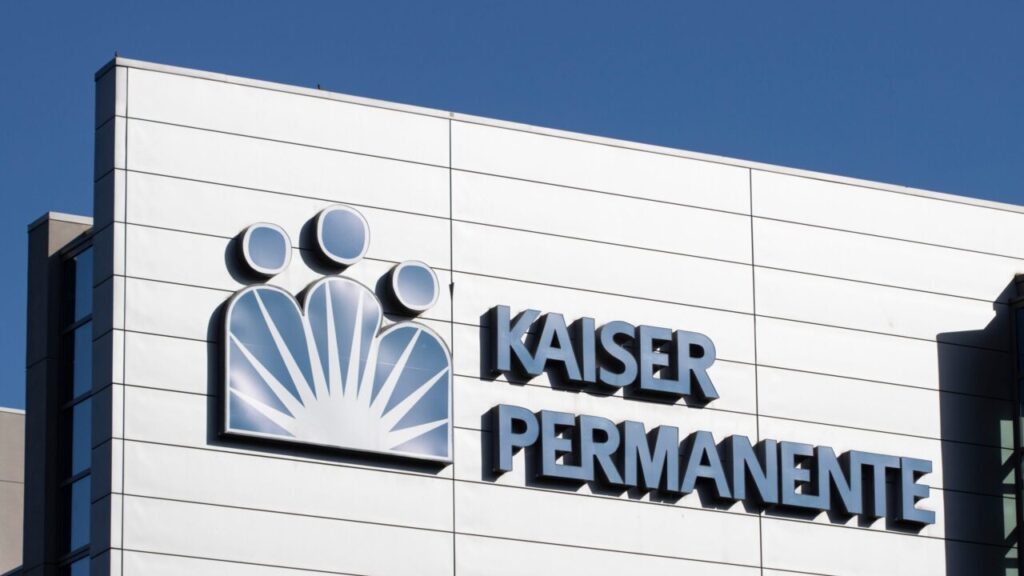A patient with a self-administered injection of Enbrel, in Athens, Ga., Jan. 25, 2018. The Biden administration has announced the results of landmark price negotiations between Medicare and the pharmaceutical companies over the prices of Enbrel and nine other costly or common medications taken by millions of older Americans. (Audra Melton/The New York Times)

- Negotiations are set to take effect in 2026, saving billions and reducing costs for select drugs.
- The administration promotes the drug pricing reforms as a key accomplishment during the presidential race.
- Drugmakers criticize the negotiated prices, while Wall Street analysts view the impact on companies as minimal.
Share
|
Getting your Trinity Audio player ready...
|
WASHINGTON — The Biden administration on Thursday unveiled the results of landmark drug price negotiations between Medicare and pharmaceutical companies, allowing President Joe Biden and Vice President Kamala Harris to cast themselves as confronting the drug industry on behalf of older Americans at a critical moment in the presidential campaign.
Negotiated Prices Take Effect in 2026
The negotiated prices, which take effect in 2026, are expected to save billions of dollars for Medicare, which is funded by taxpayers. But they will lead to direct out-of-pocket savings for only a subset of the millions of older Americans who take the drugs subject to negotiations.
Other provisions of the law that created the drug negotiation program, such as capping patients’ expenses for insulin and their yearly out-of-pocket drug costs, will do more to save older Americans money at the pharmacy counter.
The 10 drugs subject to negotiations include widely used blood thinners and arthritis medications. Had the new prices been in effect last year, administration officials said, Medicare would have saved $6 billion, which would have reduced its spending on those drugs 22%, administration officials said.
Related Story: Wired Wednesday: Breaking Down the Lawsuit vs. Community Health System
“This is a fight all of us have been fighting for a long time: taking on Big Pharma,” Biden said at an event in Maryland celebrating the announcement, where he and Harris had their first joint public appearance since she took over the Democratic presidential ticket.
The negotiations, a longtime aspiration of Democrats, are the first that the federal government has directly conducted with drugmakers on behalf of Medicare beneficiaries. Biden on Thursday recalled working on legislation as a senator in the 1970s that would have allowed Medicare to negotiate prices directly.
The pharmaceutical industry, which has fiercely opposed the negotiation program, quickly criticized the new prices Thursday, saying they would not help patients. Bristol Myers Squibb, the maker of the blood thinner Eliquis, one of the drugs subject to negotiations, said the drug’s new price “does not reflect the substantial clinical and economic value of this essential medicine.”
It is impossible to tell how much the new prices will save Medicare for each individual drug. The federal government does not disclose the net prices it pays for medications, which take into account the billions of dollars in discounts that reduce Medicare’s spending.
But estimates from health economists who have analyzed Medicare’s actual spending indicate that the new prices are lower than what the government has paid in recent years, with some drugs more discounted than others.
“These are impressive results,” said Jack Hoadley, a Medicare expert and research professor emeritus at Georgetown University.
Related Story: WHO Declares Mpox Outbreaks in Africa a Global Health Emergency as a New Form ...
Drug Companies Thought to Make It Out Unscathed
Wall Street analysts, however, told investors they thought the drug companies made out relatively unscathed, with discounts not much greater than what they already concede. “Sigh of relief,” analysts at the investment bank Leerink Partners wrote to investors. None of the big companies whose drugs were subject to negotiation had major swings in their stock prices Thursday.
Medicare’s Part D program covers most of the costs of prescription drugs that seniors take at home. About 9 million Part D beneficiaries took at least one of the first 10 medications subject to negotiations in 2023.
The new prices were made possible by the Inflation Reduction Act, a climate, health and tax bill Biden signed in 2022 that authorized the health and human services secretary to negotiate on behalf of Medicare.
The legislation delivered more immediate benefits to Medicare beneficiaries, including a $35 monthly cap on out-of-pocket costs for insulin, and a $2,000 annual cap on patient costs for drugs taken at home. The $2,000 limit will go into effect next year.
The seniors who may see direct savings from the negotiation provision of the law are those whose insurance requires them to pay a percentage, often 25%, of a drug’s cost before discounts. When Medicare’s price is lowered in 2026, their out-of-pocket costs may be lowered too, by as much as hundreds of dollars — though that will make little difference for some who will already be benefiting from the $2,000 limit on yearly costs.
The prices released Thursday represent the maximum that Medicare Part D plans and the patient will pay for a one-month supply. Medicare shoulders most of the cost and the patient typically covers a portion.
The selected drugs account for high Medicare spending, have been on the market for years and do not face competition.
Related Story: Nonprofits’ Lawsuit Against Community Health System Misstates Medi-Cal ...
Number of Drugs Negotiated Said to Increase
The number of drugs negotiated by the federal government is set to increase in the coming years. Biden has called for Medicare to negotiate the prices of 500 drugs over the next decade.
Harris has focused some of her early presidential campaign on the Biden administration’s drug pricing reforms, including the cap on monthly insulin costs for Medicare recipients. At a series of campaign events last week, Harris said that efforts to “take on Big Pharma” would be among her first priorities as president.
Harris cast the tiebreaking vote for the legislation that delivered the drug price negotiation program, something she and Biden highlighted at the Maryland event.
Medicare’s Part D program covers most of the costs of prescription drugs that seniors take at home. It relies on hundreds of plans run by private insurers that administer the program. Part D plans hire middlemen known as pharmacy benefit managers, or PBMs, to negotiate with manufacturers to secure lower prices for the government, by extracting discounts off an initial sticker price.
The result is that Medicare, like employers in the private market, already pays less than the sticker prices for the medications subject to negotiation.
Related Story: Wired Wednesday: Breaking Down the Lawsuit vs. Community Health System
But the new negotiation program goes further in creating more leverage for Medicare by empowering the government to negotiate prices directly with manufacturers on behalf of all beneficiaries.
The negotiations have faced a legal onslaught from the drugmakers, who have argued that the program is unconstitutional and will stifle innovation and harm patients by discouraging the development of new drugs.
The lawsuits, most of which are still moving through the courts, have had little success so far.
Medicare’s new influence on drug prices could be weakened or reversed if former President Donald Trump wins the White House in November, particularly with full Republican control of Congress. The authors of Project 2025, a Heritage Foundation-sponsored playbook for a future Republican administration written in part by former Trump administration officials, argued that the drug price negotiation program should be repealed.
2026 Prices for Drugs Subject to Negotiations
Prices are the maximum Medicare Part D plans and the patient will pay for a one-month supply.
1. Eliquis, for preventing strokes and blood clots, from Bristol Myers Squibb and Pfizer, $231
2. Jardiance, for diabetes, heart failure and chronic kidney disease, from Boehringer Ingelheim and Eli Lilly, $197
3. Xarelto, for preventing strokes and blood clots, from Johnson & Johnson, $197
4. Januvia, for diabetes, from Merck, $113
5. Farxiga, for diabetes, heart failure and chronic kidney disease, from AstraZeneca $178
6. Entresto, for heart failure, from Novartis, $295
7. Enbrel, for autoimmune conditions, from Amgen, $2,355
8. Imbruvica, for blood cancers, from AbbVie and Johnson & Johnson, $9,319
9. Stelara, for autoimmune conditions, from Johnson & Johnson, $4,695
10. Fiasp and NovoLog insulin products, for diabetes, from Novo Nordisk, $119
–
This article originally appeared in The New York Times.
By Noah Weiland and Rebecca Robbins/Audra Melton
c. 2024 The New York Time Company
RELATED TOPICS:
Categories

Pentagon to Send 200 Troops to Nigeria


















